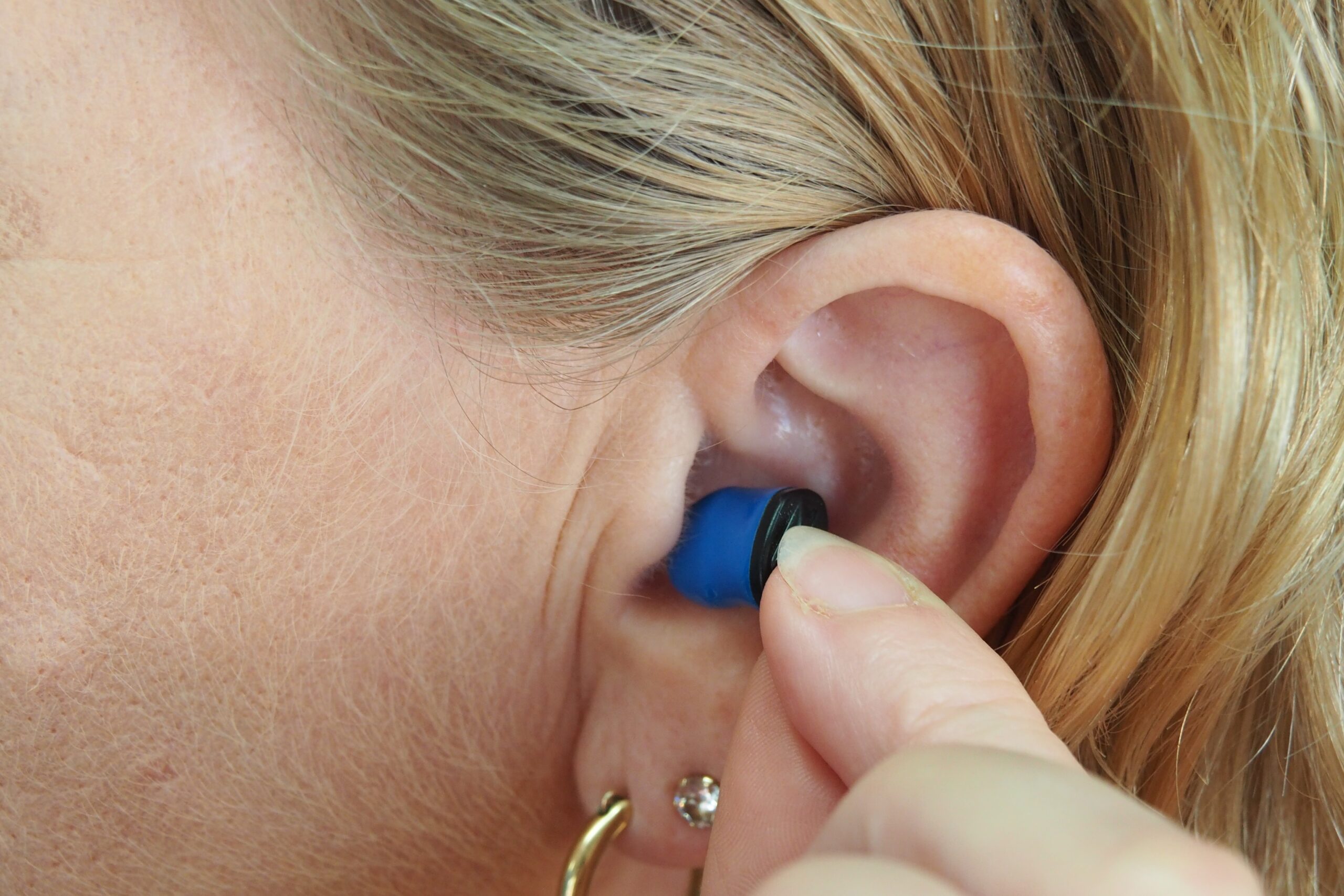When you get a hearing aid, your life can be completely transformed. Whether it’s enjoying socialising or listening to music, or just the sounds of a crackling fire, hearing clearly can have an immense impact on how you feel and what you can do.
At Regain Hearing, restoring hearing and improving sound quality with hearing aids is one of the most rewarding parts of our jobs as audiologists. But it’s important to be aware that when you first start using hearing aids, there will be a transition period as you get used to wearing them and they may feel a little strange at first. However, this will quickly change and as you adjust to your new hearing, they will become comfortable.
If you are new to hearing aids, or even if you have used hearing aids for a long time, there are some common problems you may encounter.
Here is our guide to help you fix those issues.
Four Common Problems with Hearing Aids and How to Fix Them
-
Ear Wax
A buildup of ear wax is one of the most common issues if you use hearing aids. When your ear canal is blocked with excess wax, this can get into your hearing aid, typically impacting the microphone and overall performance of the device. If you have any of the symptoms below of excess ear wax and blockage, it is advisable to get your ears checked and, if needed, have microsuction ear wax removal.
Seven Common Symptoms of Excess Ear Wax
- Pain or discomfort
- Distorted hearing
- Hearing loss
- A feeling of fullness in the ears
- Crackling sounds
- Discharge
- Unpleasant odour.
2. Whistling or Buzzing Sounds (Feedback)
Whistling or buzzing sounds can be unpleasant and make wearing hearing aids challenging. But it’s normal with most makes of hearing aid and is generally easy to fix. Here are a few quick checks and things you can do if you encounter feedback.
- Avoid friction — Make sure you don’t switch on your hearing aids until after placing them in your ears and try to stay as still as possible when you turn them on. If you turn them on before putting them in place, you may create friction when your hearing aid rubs against your ear, which can create feedback.
- Reduce the volume — Lowering the volume is one of the easiest ways to stop feedback. But if you can’t hear properly at a lower volume, it is a good idea to visit your audiologist. They can troubleshoot any problems causing feedback and adjust your device to a volume that allows you to hear clearly.
- Check them for damage — Carefully look over your hearing aids to see if you can detect any damage. Make sure the tubing hasn’t become loose or kinked and check for splits or cracks in both the tubing and earpiece. Tubing will normally need to be replaced approximately every six months and other types of minor damage may also be repairable. So if you can see damage or have recently dropped, sat or stood on your hearing aids, take them to your audiologist to be checked.
- Check the fitting — The fit of your hearing aids is critical and a poor fit can cause movement, resulting in friction that can cause feedback. This is common with hearing aids purchased online or over the counter that are not properly fitted by an audiologist. If you are struggling to position your hearing aids in a comfortable position, visit your audiologist and ask for help with the correct placement for a snug and comfortable fit.
3. No Improvement in Hearing or Distorted Sound
No sound is rarely a sign of broken hearing aids. If you find your hearing aids suddenly seem to have stopped working, it could be for one of these reasons:
- Your hearing aid is turned off — It happens to everyone; you sometimes might have forgotten to turn on the power. Take your hearing aids out, check they are turned off, reinsert them and then turn them back on.
- No battery power — It’s easy to forget that you might need to change your hearing aids batteries. Check the batteries aren’t loose and then try changing them (the average battery length is five to seven days). It can be helpful to just change batteries on the same day every week. Make sure your hearing aids are turned off before you put them back in to avoid feedback. Once they are in a comfortable position turn them back on.
- Volume too low — The volume setting may get nudged when you handle your hearing aids. Try adjusting it to see if it makes a difference.
- Clean them — Check your hearing aids for damage and follow the manufacturer’s instructions on how to clean them. If you are unsure, take them to your audiologist for cleaning.
- Check your hearing — Just like eyesight, hearing can unfortunately deteriorate over time. It is advisable to have a hearing test every few years, depending on age or circumstance or when you notice any change in your hearing. Your audiologist can help ensure your hearing aid is set to the optimal setting. If hearing loss is the cause, they can help you find a new device to give you back clear hearing.
4. Discomfort
Hearing aids can be uncomfortable or cause mild headaches as you adjust to them. Here are a few reasons you may experience discomfort or headaches from your hearing aids.
- Slipping and Fit — If your hearing aids constantly slip around, move or feel uncomfortable, they may not fit correctly. This is less likely if your hearing aids were fitted by an audiologist. It may also be due to excess wax or the way you insert your hearing aids.
- Headaches — As your brain adjusts to the hearing aids, you may find you may suffer from mild headaches. Slightly reducing the volume as you adjust to new hearing aids can often reduce headaches during the transition period.
- Poor sleep — You shouldn’t need to remove your hearing aids when you go to sleep. If you are finding your hearing aids uncomfortable when lying down, visit your audiologist for help with placement and to find sleep settings.
Seven Tips for Looking after Your Hearing Aids
To avoid problems with hearing aids, keep them in good condition and enjoy using them for years, here are five simple things you can do to protect and maintain them.
- Have your hearing aids serviced every six months.
- Keep your hearing aids turned off when not in your ears.
- Store them in the container they came in, somewhere dry.
- Take them out in your bedroom before taking a shower or bath.
- Bring your hearing aid container with you if you go swimming or to the beach and take them out before going near water.
- Wipe them down at least once a day when you take them out.
- Remove hearing aids if you are using hairspray, perfume, aftershave, or spray antiperspirants and body sprays.
What to Do If You Get Your Hearing Aids Wet
Don’t panic if you accidentally drop your hearing aids in water or forget to take them out in the shower or bath. First, simply remove your hearing aids, dry them and then remove the batteries. Keep the battery draw open and leave it to dry at room temperature for a couple of days. Do not try to dry your hearing aids quicker with a hairdryer or by putting them somewhere warm, as this may damage them.
Before you use your hearing aids, remember to put in a new battery and check the volume setting.
When you put them in, make sure they are turned off and only turn them on when they are comfortably in place.
Take Away
Not all problems with hearing aids are down to the device. Only certain types of hearing aids are suited to severe hearing loss, so if you have purchased hearing aids and feel as if you have never truly heard clearly with them in place, it could be because your hearing test results were not accurate. Subsequently, your hearing aids may not be adequate for your level of hearing loss.
If you have any concerns about your hearing aids or find they are uncomfortable, please pop in and see us at Regain Hearing in London, Kent and Essex. Our audiologists can check your hearing aids and give you an ear exam to make sure you don’t need ear wax removal.








